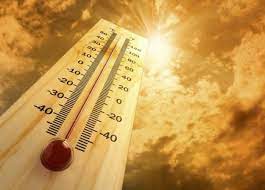Hydration, avoiding exposure to the sun and not abandoning their medications can save the lives of these patients.
The arrival of the heat, which according to the UNO will break records in the world due to the El Niño phenomenon, can be dangerous for patients with cardiovascular diseases, especially during the summer when many do not take their medication in an adequate way.
Taking into account that about 30% of the Dominican population suffers from hypertension, Listín Diario consulted cardiologist Claudia Almonte to explain the consequences that these people could face and how to prepare themselves.
The expert says that up to 20% of cardiovascular patients stop taking their medication during the summer, which  can lead to serious complications such as angina, heart attacks, strokes, heart failure and even kidney failure.
can lead to serious complications such as angina, heart attacks, strokes, heart failure and even kidney failure.
It is crucial that patients taking diuretics hydrate adequately, and avoid exposure to high temperatures and exercise in heavy clothing. It is recommended to exercise early in the morning or in the evening, when temperatures are lower. In addition, it is important to avoid alcohol consumption and eat a healthy and balanced diet, rich in fruits, vegetables and salads.
“It is important that the patient taking a diuretic, as long as his or her physician authorizes it, hydrates adequately. He should not expose himself to high temperatures; he should not go out to exercise wearing very hot clothes, but light, preferably made of cotton, wearing a jacket or something that covers his head. Do not do it at times of high temperature, but early in the morning or at dusk”.
Heat and blood pressure
During the summer, blood pressure values are usually lower due to the vasodilatation that occurs, which may favor the loss of body temperature. Hypertensive patients who are exposed to the sun and are not adequately hydrated can suffer hypotension, which can lead to fainting and loss of consciousness.
Dr. Almonte emphasized how important it is for patients not to forget to take their medications and to consult their physician if they have any symptoms, such as shortness of breath, chest pain, headache or discomfort. It is also important to talk to their doctor before traveling to vacation destinations where altitude can affect blood pressure or temperatures.
Fresh fruits and vegetables help
A healthy diet based on eating lots of fruits and vegetables, plenty of salads and avoiding salty foods, because they can increase blood pressure and retain fluids, are measures to take into account so that the impending high temperatures are less.
Reducing alcohol consumption and sleeping between 7 to 9 hours are other measures that can save a person with this condition during the heat.
“If you are going to take a long-haul flight, avoid immobility, hydrate well. Some patients require some anticoagulants to be able to take very long trips of more than four hours, and try to make sure they take the necessary amount of medication with them wherever they go,” he explained.
Source: Listindiario.com
Learn more: HEALTH

